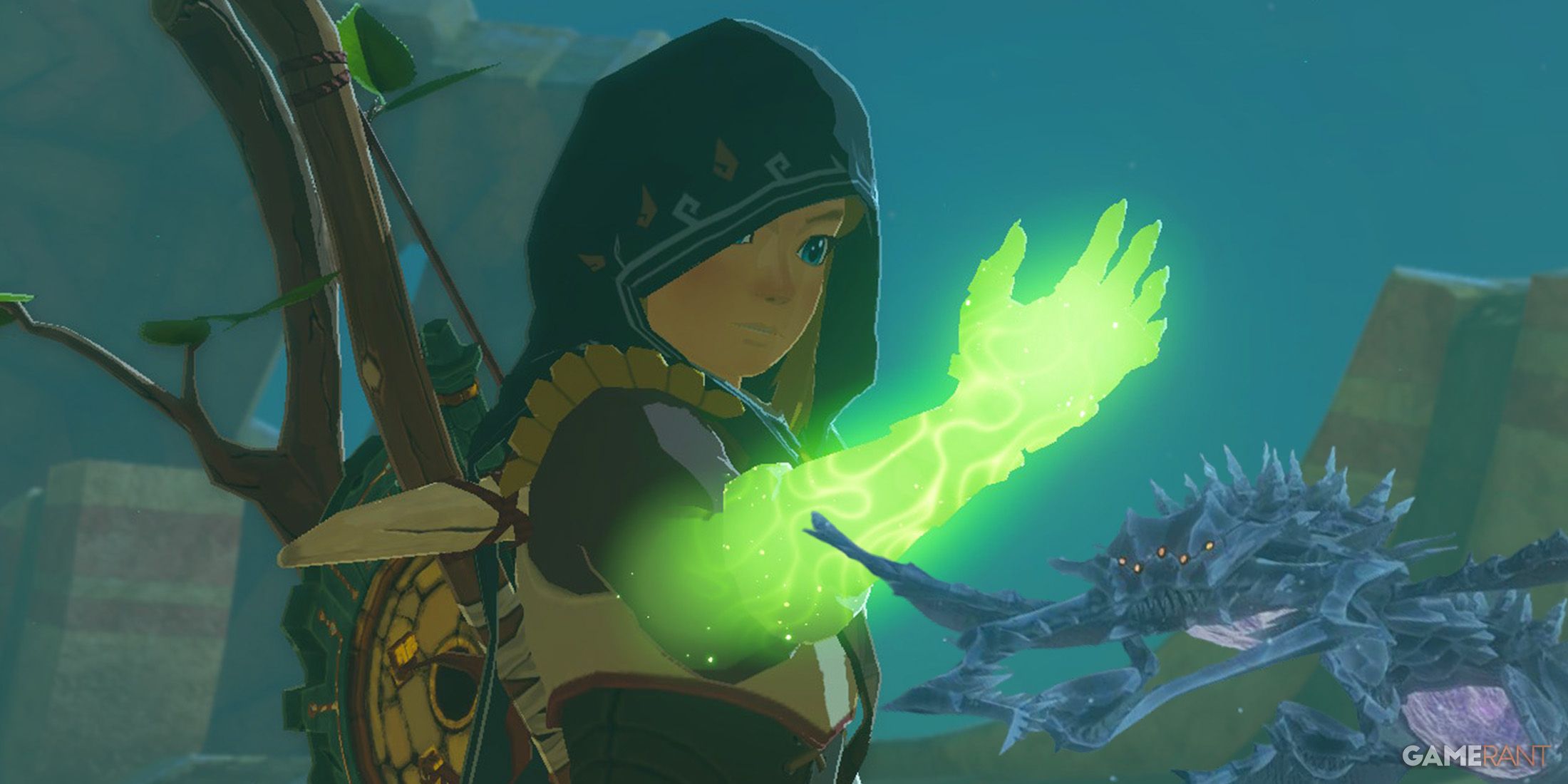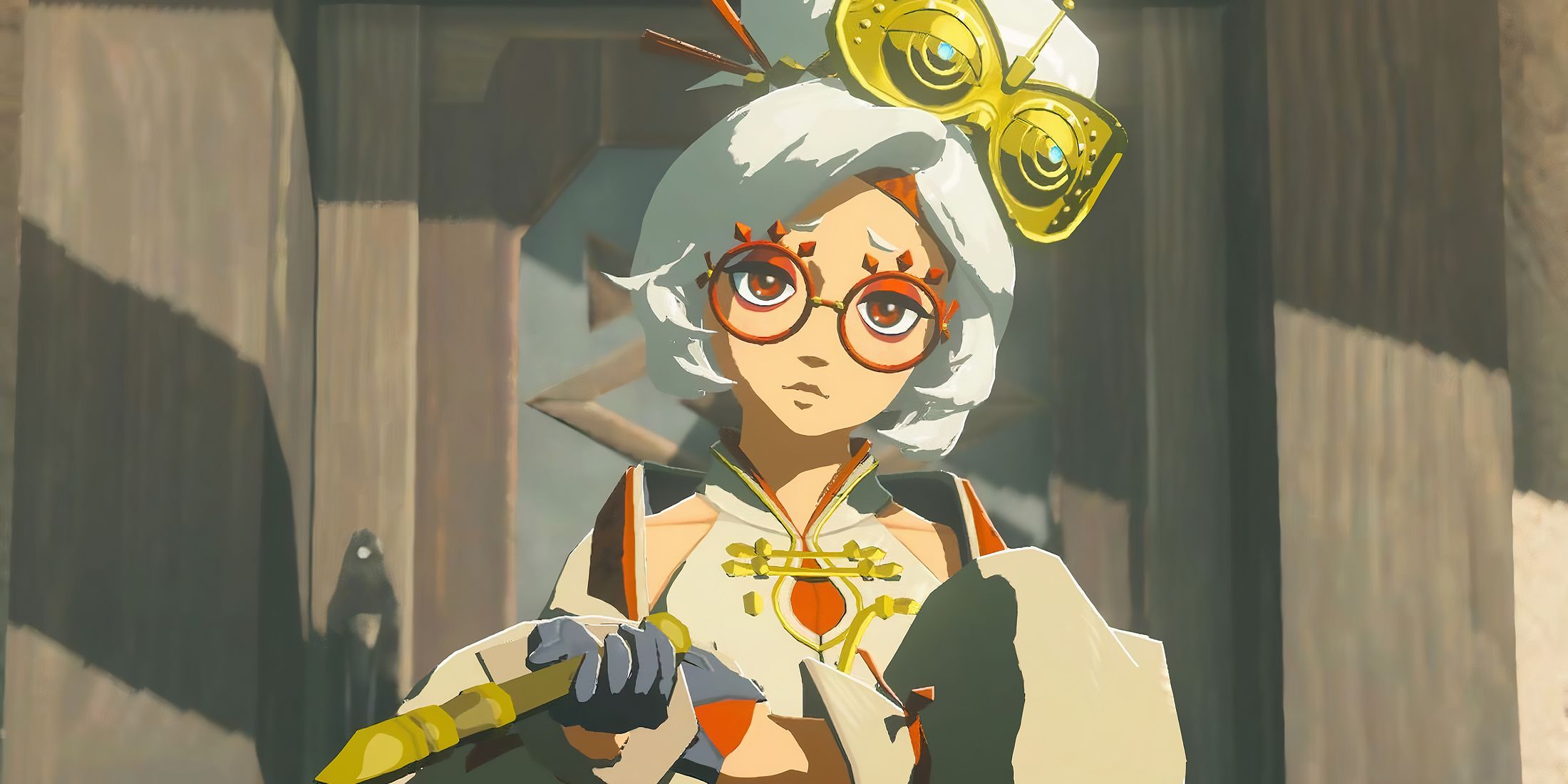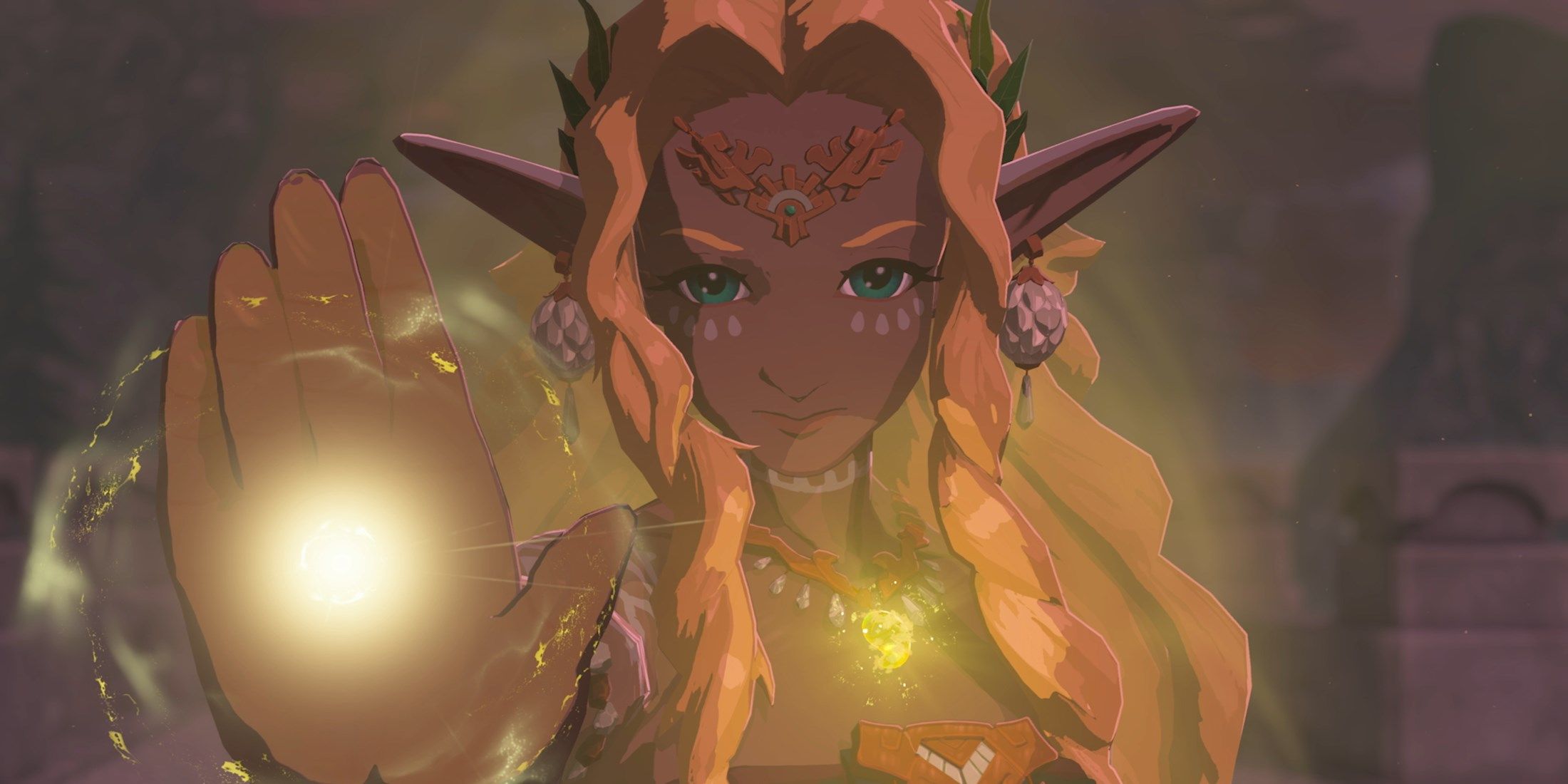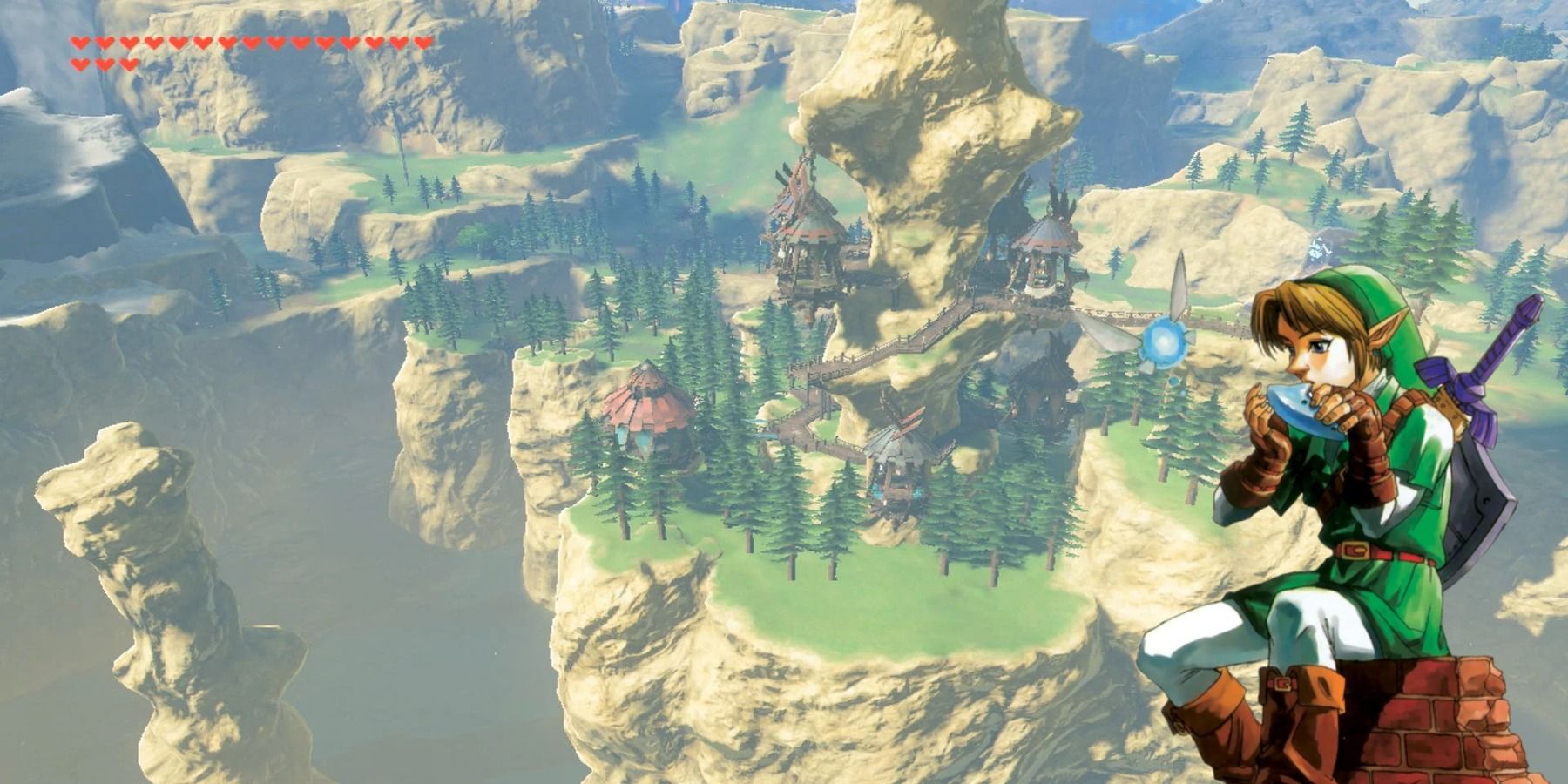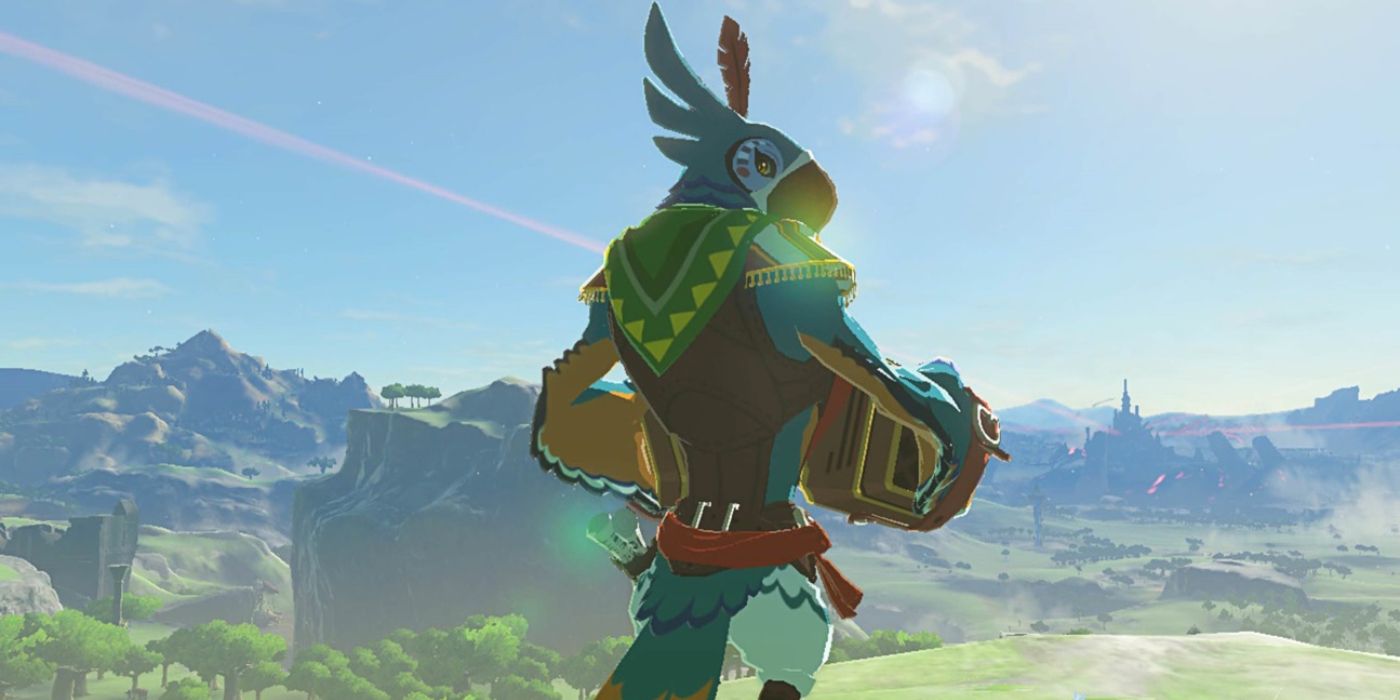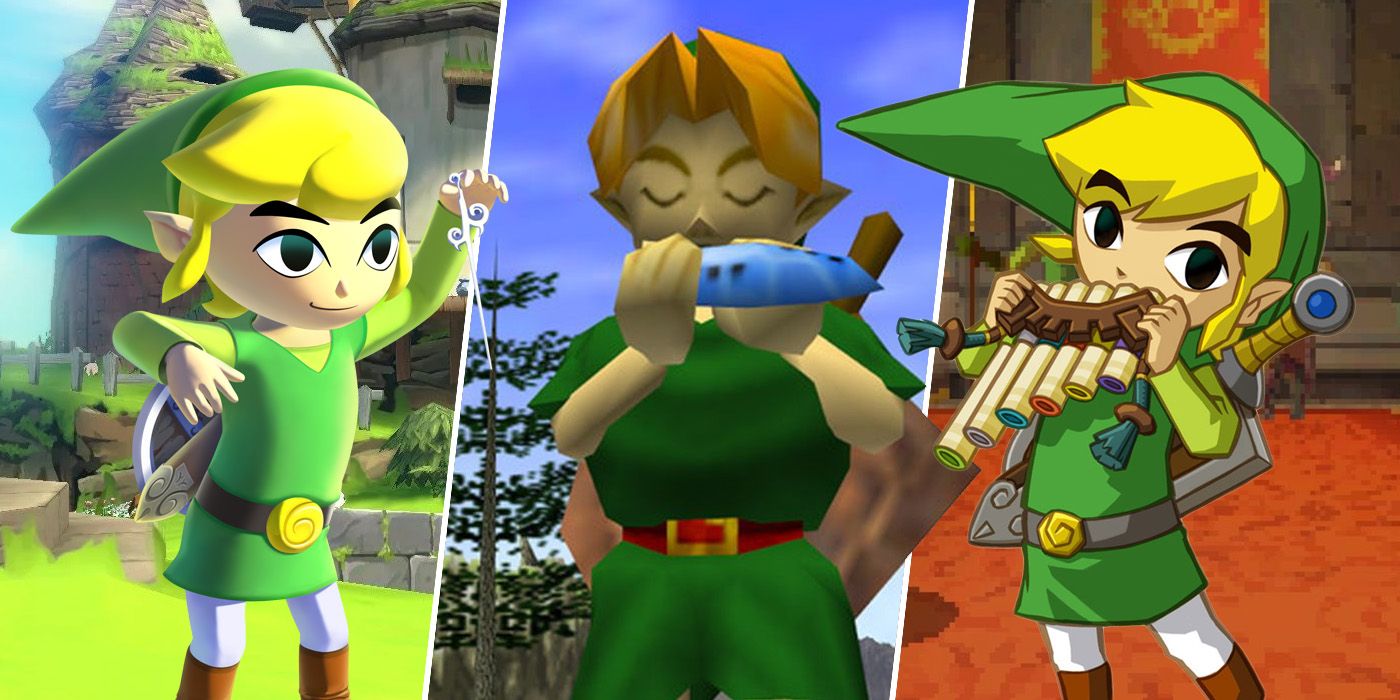The long awaited sequel to 2017's Breath of the Wild is anticipated by Nintendo fans across the globe, and promotional material has been scarce and teasing. The Legend of Zelda: Tears of the Kingdom is the name of the upcoming project, which surely implies a more story-focused affair rather than its predecessor's hands-off approach to exploration, and there were plenty of players who took issue with the latter's game design. To many, it didn't feel like a conventional Zelda title despite drawing similarities to the very first game in the franchise, and it was undoubtedly missing some key features that most entries include as a forgone conclusion. Breaking pots to refill hearts, detailed dungeons, and a linear philosophy were pushed to the wayside, but one element was the most noticeably absent.
Music is vital in Zelda, and Breath of the Wild prioritized atmospheric audio flourishes that made the world feel authentic and lived in. Small tunes to imply players have found one of Hyrule's many curiosities is delightful to experience, but the series is known for epic tunes like Gerudo Valley, Midna's Lament, Ballad of the Goddess, and the main theme itself, so Breath of the Wild couldn't compete with what came before. The Legend of Zelda: Tears of the Kingdom has the opportunity to correct this, and taking inspiration from one tune in its predecessor would be a suitable way to restore Zelda's reputation as the undisputed king of music in games while also maintaining the atmospheric benefits of Breath of the Wild's underappreciated score.
Music Was an Area of Improvement in Breath of the Wild
There were only a few musical numbers in Breath of the Wild that were truly memorable. Kass' theme is jovial, troubadour-ish, and familiar, with elements of the main theme being added for good measure, and the enchanting feeling of Zora's Domain is made all the better by the music that sits in the background. However, perhaps the game's best musical moment is when players ascend upon Rito Village, located in the center of Lake Totori.
It's wonderful, not just because it harkens back to 2002's The Legend of Zelda: The Wind Waker, but also because it's a strong theme, and one that defies conventions of Breath of the Wild to be something that is easy to whistle along to. Songs like this are so few in the 2017 masterpiece, and Nintendo should be looking to please fans who found the lack of memorable music in Breath of the Wild distracting, if not disappointing.
How Zelda's Music Connects the Franchise Ahead of Tears of The Kingdom
The confusing Zelda timeline largely feels like a half-hearted attempt to tie together a myriad of games that weren't made to sit in a single continuity, and plenty of fans disregard it entirely. The magic of Zelda isn't in desperately finding where the new games fit in with all the rest, it's about the thrill of the adventure itself, and there are certain prerequisites that need to be hit to make each entry a success. Music is one of them, and the recycling and remastering of the Dragon Roost Island theme in Breath of the Wild made that title, just for a moment, feel like a typical Zelda offering in all the right ways.
It was incredibly rewarding for people who find enjoyment in The Legend of Zelda: The Wind Waker, and the way it is toned down and made less dense ensures it never breaks immersion, nor is it a lazy way to make older fans feel gooey-eyed and nostalgic. The Rito could shine more in Tears of the Kingdom due to its airborne locations being shown off in the trailers, and the Dragon Roost Island theme will forever be connected to the race. This can be true of others who call Hyrule home, and gamers would be spoiled if they approach a pack of Picori, only to be met with a tune from The Minish Cap.
The Legend of Zelda: Tears of the Kingdom has to implement music in a way that feels familiar to Nintendo fans of old if it wants to straddle the line between revolutionary and comfortable. Thus, leaning into older themes but reworking them to suit the atmosphere created in Breath of the Wild would be a great way to achieve this. Breath of the Wild's Rito Village is one of the more memorable spots in Hyrule, and its due in large part to the majesty of the music that begins when Link stumbles upon the settlement. Ultimately, this same atmosphere should be recreated in Tears of the Kingdom, which could enjoy a better reception from long-standing fans as a result.
The Legend of Zelda: Tears of the Kingdom is available May 12, 2023, for Nintendo Switch.

